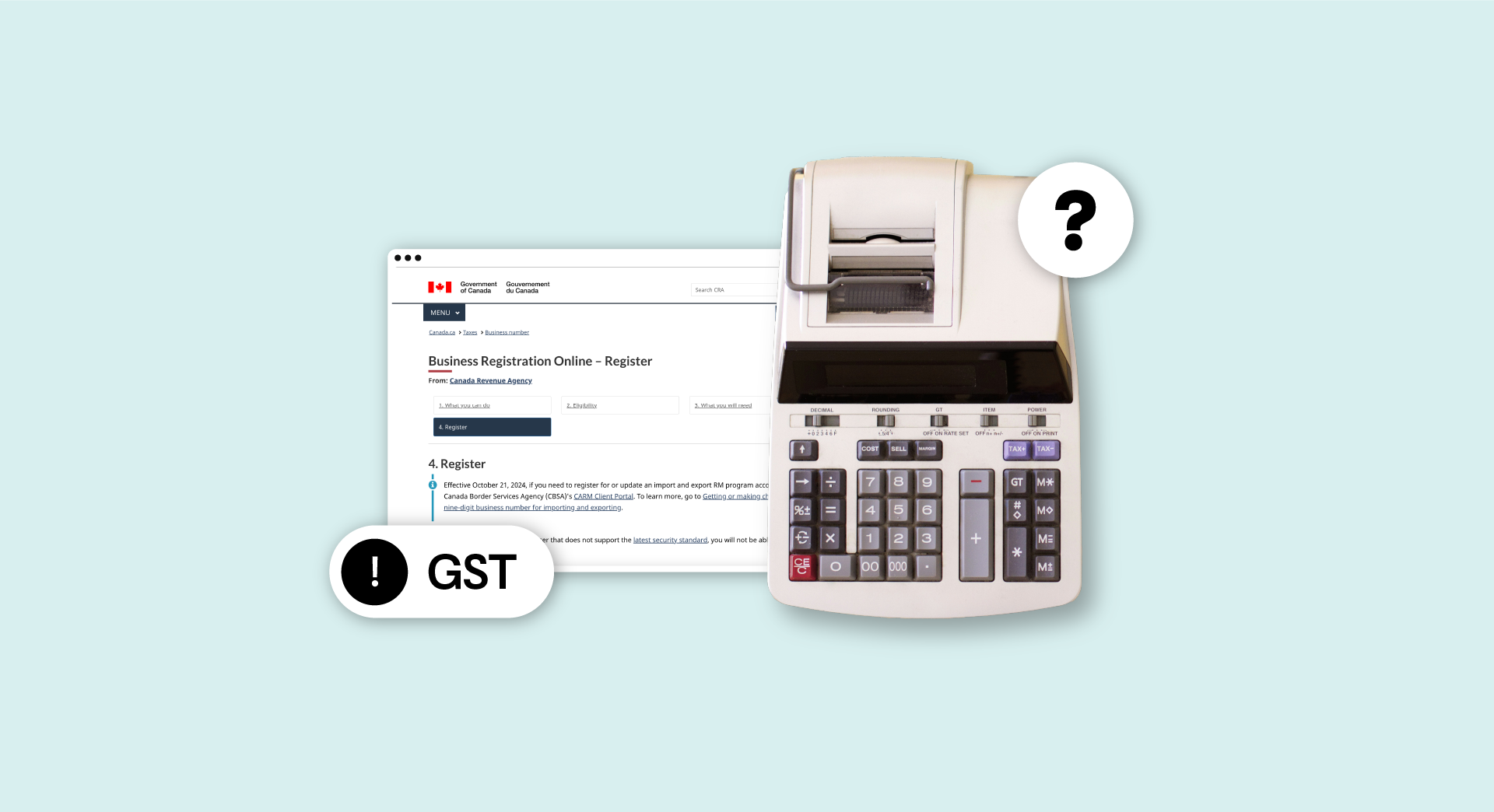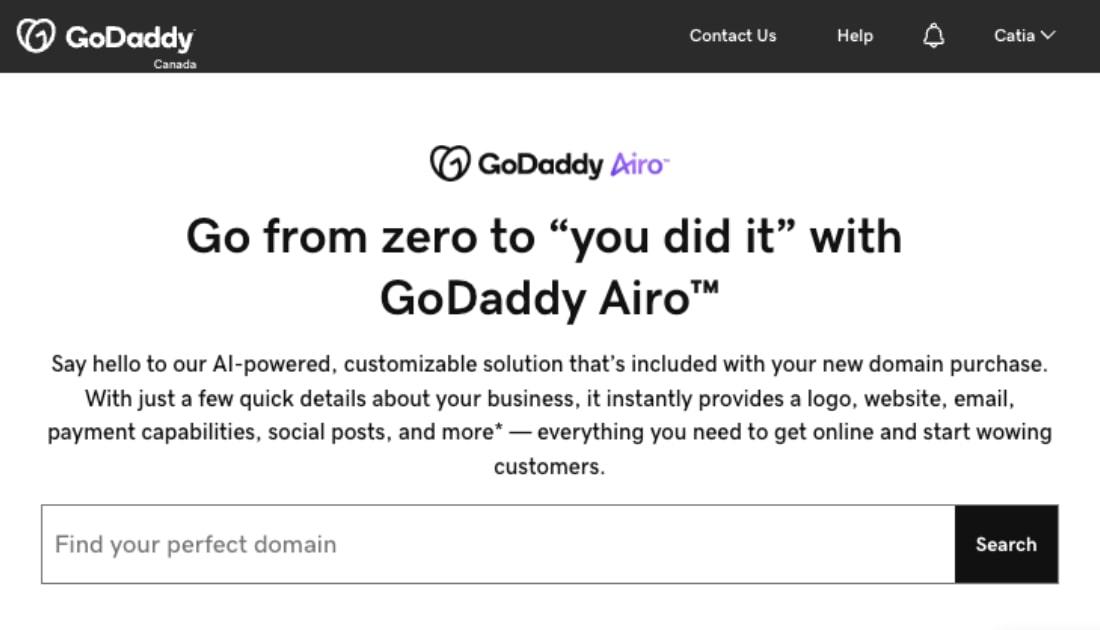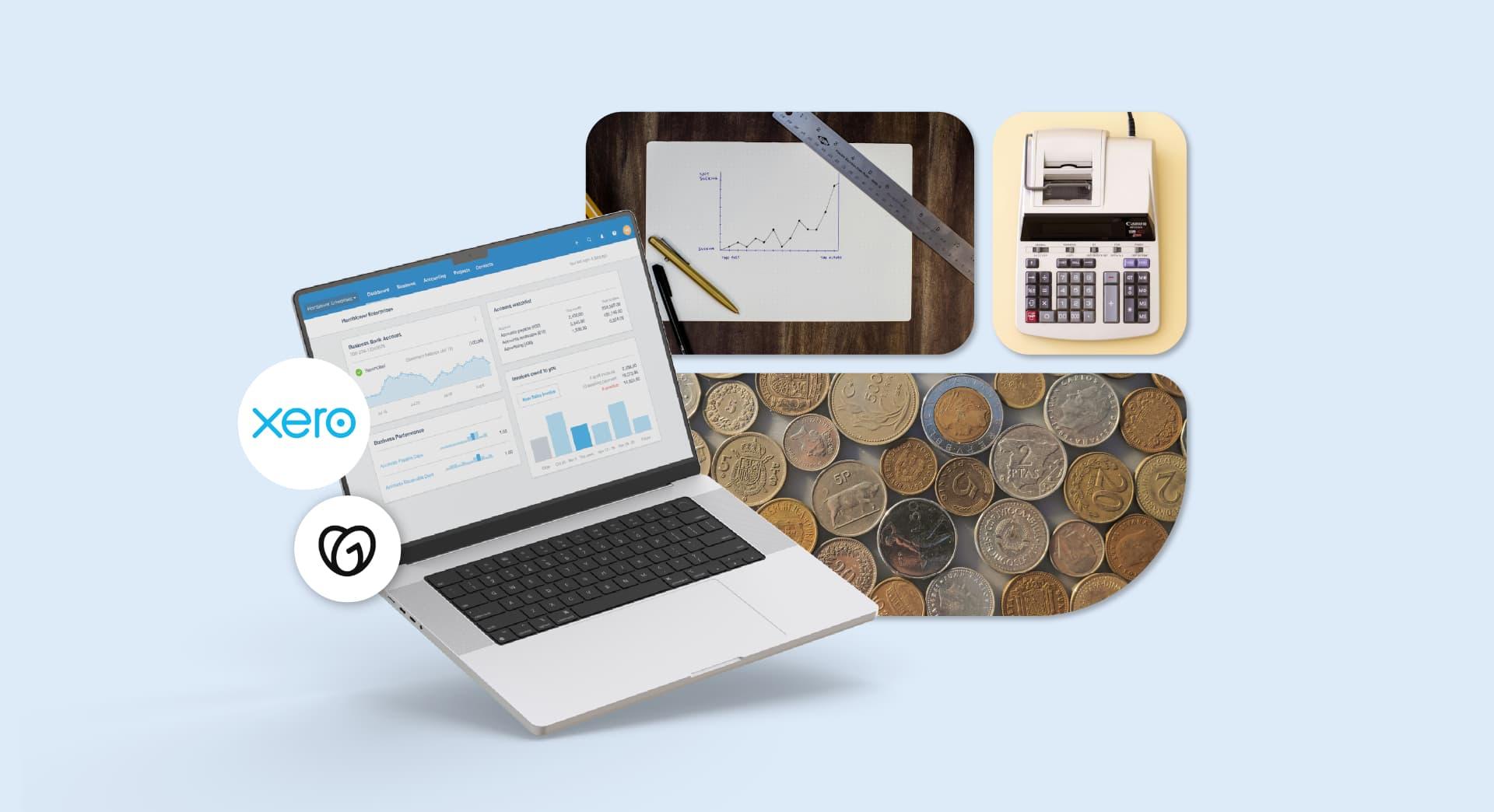If you are in the process of starting your own business in Alberta, you’ve likely been told that you need to register for GST (goods and services tax) before commencing operations.
The topic of taxation almost always leaves new business owners somewhat anxious. However, registering for a GST number in Alberta is fairly straightforward, and might not even be necessary when you’re first starting out.
The process is the same in every province except for Quebec, which has a slightly different process.
In this article, we are going to look at how you can register for a GST number in the province of Alberta. We’ll also note which types of Canadian businesses are exempt from GST.
Editor's note: Tell us about your idea and GoDaddy Airo will generate a domain name, logo, website, social media handles and more. All for the price of your domain name.* Try it now! TechRadar Pro calls Airo a "game-changer for small businesses."
What is GST?
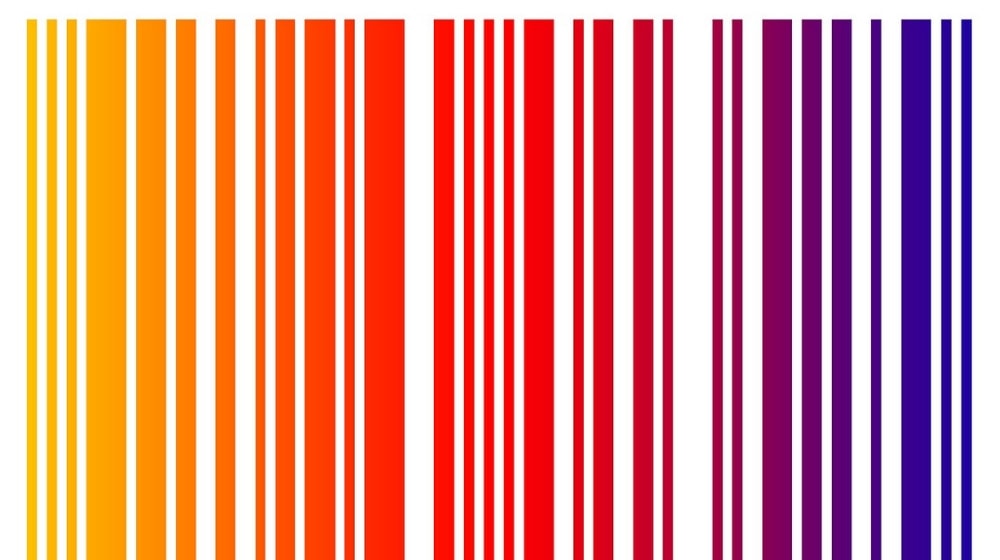
To start, all Government of Alberta entities are required to complete and submit a GST Remittance Form before the 20th day following the month end when GST has been collected or paid.
The Goods and Services Tax (GST) is a flat tax of 5% in Alberta as well as in B.C., Manitoba, Northwest Territories, Nunavut, Quebec, Saskatchewan and Yukon.
Some provinces combine their Provincial Sales Tax (PST) and their federal GST into one tax called a Harmonized Sales Tax (HST).
HST is 13% in Ontario and 15% in New Brunswick, Newfoundland and Labrador, Nova Scotia and Prince Edward Island.
Already have a business number? You're all set
In Canada, your GST number is the same number as your Business Number (BN). This unique 9-digit number is essentially a tax number that has been assigned to your company by the Canadian Revenue Agency (CRA).
You will need this number throughout the course of doing business in Alberta; you will be required to put it on every sales invoice you issue. This allows your customers to report which business they bought from and to whom they have paid GST.
How to register for GST

If you want to register your business for a GST number (aka Business Number) in Alberta, then there are three ways that you can do it.
- You can apply online.
- You can apply by phoning Revenue Canada at 1-800-959-5525.
- You can apply through mail or by faxing your application to the Canada Revenue Agency (CRA) office.
You can also look for a CRA office near you and visit them to learn more about registering for a GST number.
GST registration forms
While the process of registering for a GST number in Alberta is not complicated, there are several forms that you will need to complete.
- The most common form is the Basic Registration for a GST/HST account. This is the form most small business owners will need to complete.
- Alternatively, if you wish to open up a separate GST/HST account for a branch or division of your company, please use the GST 10 form.
- If you are doing business within Canada but are not a resident of Canada, then you’ll need to use the RC4027 form.
If you would like additional information, check out Canadian Revenue’s GST/HST forms and related publications.
Are all businesses required to charge GST?
Most businesses in Canada are required to charge the 5% tax for GST. This is mandatory for all except for those deemed small suppliers or businesses that sell products that are exempt. These types of businesses sell goods or services called GST/HST Zero-Rated Goods and Tax-Exempt Goods.
To put things simply, if total sales are less than $30,000 in the previous four calendar quarters (aka the past year), you usually do not need to register for and collect GST. Refer to the CRA website for “small supplier” specifics and exemptions.
Some of the most common examples of Zero-Rated Goods include:
- Groceries
- Farm equipment
- Livestock
- Prescription drugs
- Medical equipment
Similarly, some of the most common examples of Tax-Exempt Goods include:
- Residential housing (used and heavily renovated)
- Accommodation rental
- Music lessons
- Medical and dental services
- Insurance
- Daycare
- Legal counsel
While these are not all of the goods and services that are exempt, this provides a practical example of some that are. You can find a complete list of GST exemptions for Alberta businesses here.
From the perspective of the customer, the names make little difference because they aren’t getting charged with either GST or HST. However, there is a difference from the perspective of a business owner, because both of these tax-exempt categories need to be reported differently when you are filing your tax returns.
Are there any benefits to GST registration?
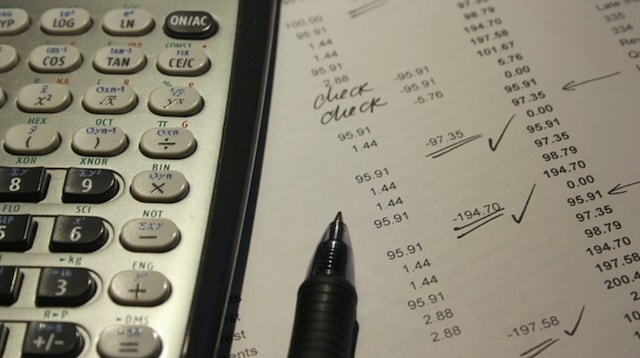
While not every business needs a GST number, there are benefits to having one even if you aren’t required to register for one.
One of those benefits is that having a GST number allows you to claim the GST/HST that you might have already paid throughout the course of doing business. This refunded GST/HST is referred to as Input Tax Credits (ITC). You are able to claim these refunds, along with most expenses, costs of production and any other business costs if they are deemed to be an ITC.
Register for GST — it’s easier than you think
Registering your company for a GST number in Alberta can seem like a daunting task, especially if you’re a new business owner. However, this process is actually very simple. The first step is determining if your company qualifies for GST exemption, or whether you’ll be required to collect GST.
After that, you simply access the CRA website to complete the applicable registration documents or stop by the nearest CRA office.
Even if your company is exempt from GST taxation, registering for a GST number can have benefits and might be well worth the hassle. When it comes to your business, every penny counts!
Frequently asked questions (FAQs)
Still have questions? The answers may be here.
Do I have to pay GST if I make less than $30,000?
The purchase of most goods and services incurs GST. but business with a GST number can claim back the GST it paid on business expenses. A business earning less than $30,000 per year generally does not need to charge others’ GST.
How do I get a registered GST number?
The easiest way is to apply online at the CRA website.
What is the income limit for GST?
Generally, businesses with sales less than $30,000 over the previous four calendar quarters can ignore GST.
This threshold is a relief for small businesses and startups, allowing them to grow without the added administrative burden and financial responsibility of handling GST. However, it’s crucial for these businesses to continuously monitor their revenue, as surpassing this limit requires them to register for GST and comply with the associated regulations promptly
What is the threshold for filing GST?
More than $30,000 in sales over the past four calendar quarters.
If your business's total revenue surpasses this threshold, you're required to file for GST. This means you need to collect GST on your sales, file regular GST returns, and remit the collected GST to the government. Staying on top of your sales figures is important to ensure you comply with these regulations and avoid any potential penalties.
Do I need to register for GST/HST?
Not if you are a small supplier with less than $30,000 in sales over the past four calendar quarters.
This exemption allows you to operate without collecting or remitting the tax. Once your sales exceed $30,000, you must register promptly to comply with tax regulations and avoid penalties.
Does my small business need to collect GST/HST?
If you are a small supplier or sell tax-exempt or zero-rated goods, you do not need to collect GST/HST.
Does my business have to collect provincial sales taxes?
There is no provincial sales tax in Alberta.
There is however provincial sales tax in other parts of Canada, where it is folded in with GST to make up the Harmonized Sales Tax (HST).
All told, the HST is 13% in Ontario and 15% in New Brunswick, Newfoundland and Labrador, Nova Scotia and Prince Edward Island. It's folded into what's called the
How do I obtain a Business Number?
The easiest way is to apply online at the CRA website.
Start by creating a CRA My Business Account, which will guide you through the registration process.
You'll need to provide details such as your business name, type of business, and personal information to complete the application. Once submitted, you will receive your BN, which is essential for handling taxes, GST/HST registration, and other business activities.
When does CRA conduct audits or investigations?
The CRA can conduct an audit or investigation at any time, and they may go back six years. There is no limit if fraud or misrepresentation is suspected.
Who should register for a GST/HST number?
If your business is legally required to collect GST, you must register. You can choose to register, even if you are not required to, thus allowing you to claim back the GST spent on business expenses.
What are the steps to register for GST online?
To register for GST online, visit the Canada Revenue Agency (CRA) website and create a CRA My Business Account. Navigate to the GST/HST section and follow the prompts to complete the registration form. Ensure you provide all necessary business details accurately to finalize the process.
What documents are required to register for GST online?
To register for GST online, you'll need your business number, details of your business activities, and banking information for direct deposit. Make sure to have your business registration documents and identification handy as well.
These documents will help you complete the registration form accurately and efficiently.
How can I check if a business is GST registered?
To check if a business is GST registered, you can visit the Canada Revenue Agency (CRA) website and use their GST/HST Registry tool. Simply enter the business's name or registration number to verify its GST registration status. This tool will provide you with the information you need to confirm whether the business is registered for GST.
Elna Cain contributed to this post.
